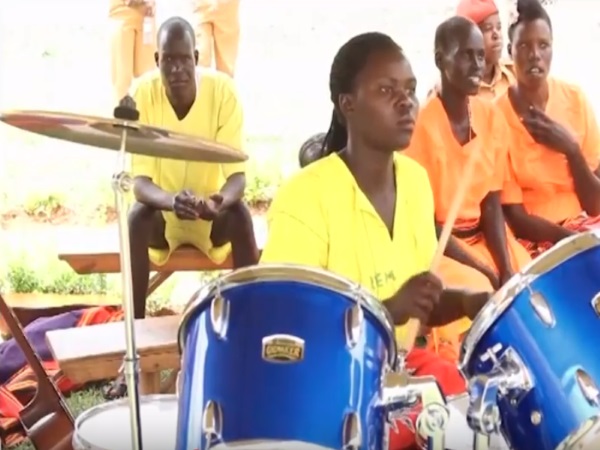Singing and dancing to religious songs, the inmates at Gulu Prisons were being trained in life skills to help them live a better life after serving their jail sentences. According to the Gulu district Prisons Commander Margaret Orik Obonyo, “Many training have been conducted by Advanced Africa, it did not only benefit our staff and the inmates but even some of our children, our youth from within the barracks who were even awarded certificates and others are also doing so well.” Besides imparting skills, these inmates received start-up kits like a brand-new band to enable them engage in small enterprises and avoid to be re-offended.
This very care facility was as well inaugurated in this Prison to cater for the Early Learning of the inmates’ children. However, according to Calitus Swederland the Country Director UGUAcen, inmates needed to work towards ensuring a good future for their children. “That having a good project is necessary to bring together different experiences, different capacities to different knowledge and engagement from people not only for people like me here today for 2 or 3 hours but who are present every day. They very critical even when you are a rich country, they don’t give money, they want to know what we are doing with it and when you give us access, we can explain. We are believing in you and more than that, a care center for children is something that we want to show, the children are all always innocent, they are always innocent.”
The programme was currently operating 28 Prisons in Lango and Acholi sub-region being implemented by Advanced Africa in partnership with Uganda Prisons Service. Over 1,643 inmates had since 2014 benefitted in the economic empowerment and social re-integration. While 463 small-scale businesses of ex-inmates had been supported. Statistics showed that 4% of the inmates in Uganda Prisons were females, over 75% youth which was majorly blamed on the high unemployment. Since we started in 2014, we have trained over 1,643 in Entrepreneurship and life skills. 1,643 inmates trained in our pieces of training. We have also supported 463 small businesses, we have supported inmates, ex-inmates with start-up kits. Re-entering society after long-term imprisonment came with challenges such as barriers to receiving public benefits, gaining successful employment and regaining custody of children and obtaining housing.

